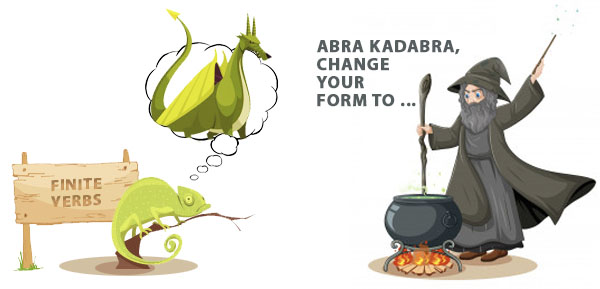Finite Verbs in English With Examples

What are Finite Verbs?
Like other verbs, finite verbs function in a sentence to describe the action of a person, place, or thing. Finite verbs have subjects and indicate three things: 1) person, 2) number, and 3) grammatical tense. In other words, their form changes when there is a change in the number or person of the subject, or when there is a different tense.
Always remember finite verb forms change when the subject change the:
- 1) Person: You go to the gym.
- 2) Number: he goes to the gym.
- 3) Tense. we went to the gym.
Here are some other examples of finite verbs:
- The quarterback scored a touchdown.
- We went to the beach yesterday.
- I go to school on Tuesdays and Thursdays.
- The cats played with the toys we gave them
- The boy ate all of the ice cream.
Sometimes, this include the negation (not), as in are not, could not, or does not:
- Aren’t you hungry this morning?
- She couldn’t get a ticket for the ballet performance.
- This train does not go to Edinburgh.
Finite and Non-Finite Verbs Together
Finite verbs do not require another verb in the sentence to be grammatically correct. However, sometimes they work together with non-finite verbs, which do not change their form when the number or person of the subject changes. They stay consistent, regardless of tense, person, or number. We cover these in another section non-finite verbs in English, but here are some examples where finite and non-finite verbs are combined in one sentence.
Examples:
- My cousin wants to be a doctor when she grows up.
- Your job is to count all of the missing pieces of the puzzle.
- John worked hard to pass his entrance examination.